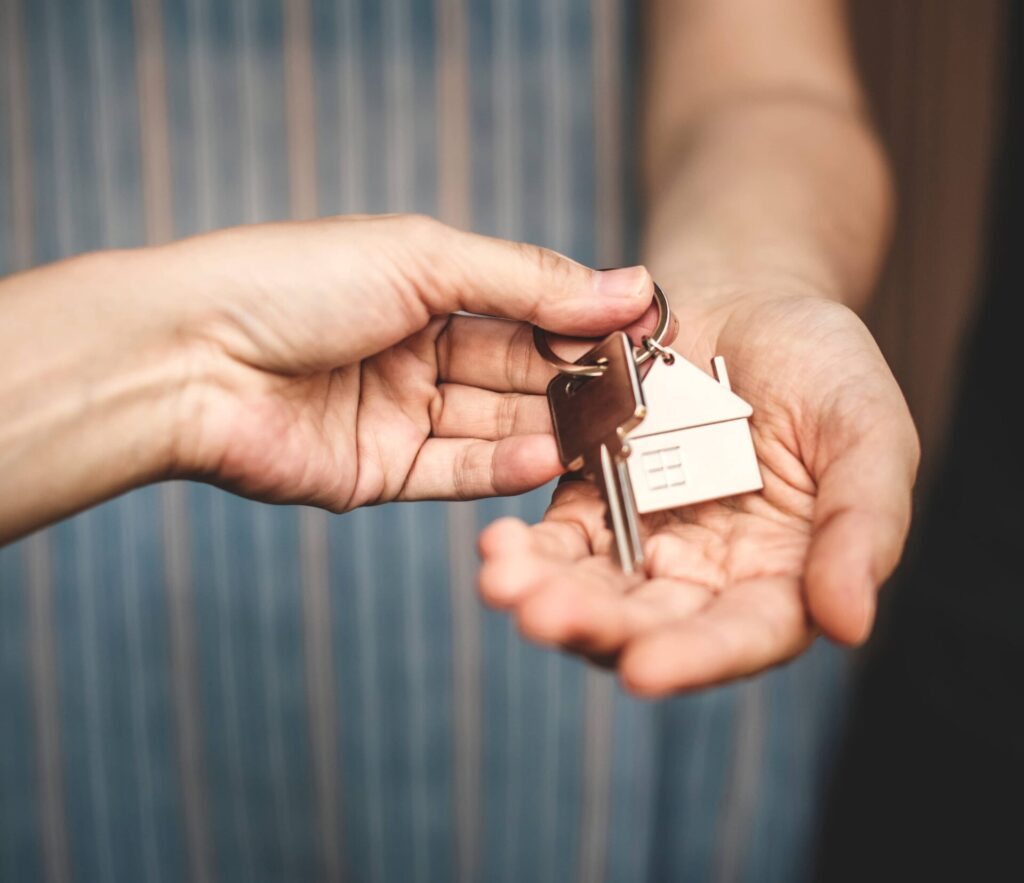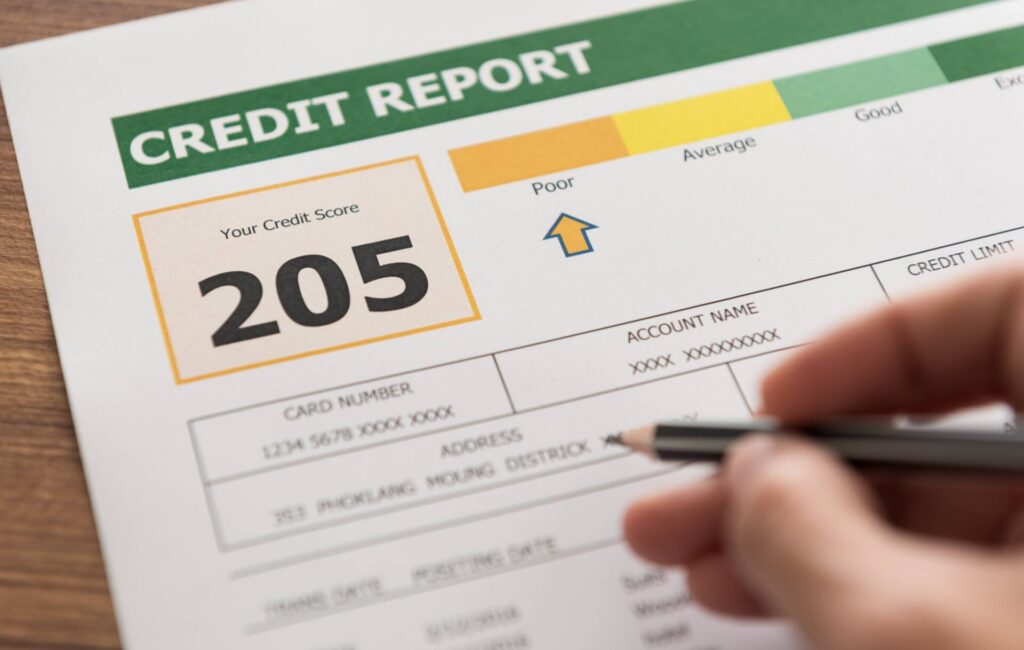Hey there, future homeowner! Are you ready to take the plunge and buy your dream home? Before you start browsing real estate listings, it’s important to understand how mortgages work and how much house you can actually afford.
At its core, a mortgage is a loan that you take out to buy a home. Mortgages come in many different shapes and sizes, but they all share one thing in common: they’re a big commitment. After all, you’ll be paying off your mortgage for years to come, so it’s important to make sure you’re comfortable with the payments before you sign on the dotted line.
That’s why it’s crucial to know how much house you can afford before you start looking at properties. After all, there’s nothing worse than falling in love with a home that’s way out of your price range. In this article, we’ll walk you through the factors that determine how much house you can afford, and we’ll give you some tips for preparing your finances for homeownership. So, grab a cup of coffee, and let’s get started!
Alright, let’s dive into the nitty-gritty of what determines how much house you can afford. Here are the key factors you need to consider:

Income
This one’s pretty straightforward. The more money you make, the more house you can afford. But it’s not just about your salary – lenders will also consider other sources of income, such as bonuses, overtime, and investment income. It’s important to note that lenders will typically want to see a stable employment history, as well as a likelihood of continued income in the future. If you’re self-employed, lenders may require additional documentation to verify your income. Keep in mind that while a high income can increase your buying power, it’s also important to consider your overall financial goals and budget before committing to a mortgage.
Debt-to-income ratio (DTI)
Your DTI is the amount of debt you have relative to your income. Lenders use this ratio to determine how much of a mortgage payment they can afford. Generally, you’ll want your DTI to be below 43%, although some lenders may have different requirements. It’s important to note that your DTI is not the only factor lenders will consider when evaluating your mortgage application. They will also look at your credit score, employment history, and other financial factors. Additionally, it’s a good idea to calculate your DTI before applying for a mortgage to get an idea of what kind of loan you might be eligible for.
Down payment
Your down payment is the amount of money you put down upfront when you buy a home. The more you put down, the less you’ll need to borrow, which means you can afford a more expensive home. It’s generally recommended to put down at least 20% of the purchase price, although some lenders may accept smaller down payments. It’s important to note that a larger down payment can also help you secure a lower interest rate and avoid mortgage insurance premiums. However, if you’re unable to put down 20%, there are still options available, such as FHA loans, which require a lower down payment but may come with additional fees. It’s important to work with a reputable lender to determine the best down payment strategy for your specific financial situation.
Credit score and history
Your credit score is a number that represents how likely you are to pay back debt on time. The higher your score, the more likely lenders are to approve you for a mortgage and offer you a lower interest rate. Your credit history is also important – lenders will look at your payment history and any past bankruptcies or foreclosures. It’s important to monitor your credit score regularly and take steps to improve it if necessary, such as paying bills on time and paying down debt. Even small improvements in your credit score can make a big difference in the interest rate you’re offered and the amount of house you can afford. Additionally, if you have a limited credit history, such as if you’re a recent college graduate, there are still options available, such as applying for a credit builder loan or getting a co-signer on your mortgage application.
Interest rates
Interest rates determine how much you’ll pay in interest on your mortgage. Generally, lower interest rates mean you can afford a more expensive home. However, interest rates can vary depending on factors like your credit score and the type of mortgage you choose. It’s important to shop around and compare interest rates from different lenders before committing to a mortgage. Even a small difference in interest rates can add up to significant savings over the life of the loan. Additionally, consider whether a fixed-rate or adjustable-rate mortgage is best for your situation, as each option has its own advantages and disadvantages.
So, those are the key factors that determine how much house you can afford. It’s important to keep all of these in mind when you’re looking at properties and applying for mortgages. But don’t worry – we’ll walk you through how to calculate your maximum home budget in the next section!
Now that you know the factors that determine how much house you can afford, it’s time to crunch some numbers!
Here are three ways to calculate your maximum home budget:

Using online calculators
There are plenty of online calculators that can help you determine how much house you can afford. Simply input your income, debts, down payment, and other financial information and the calculator will give you an estimate of your maximum home budget. While these calculators can be helpful, keep in mind that they’re only estimates – you’ll still need to get pre-approved for a mortgage to know for sure how much you can afford.
The 28/36 rule
The 28/36 rule is a common guideline used by lenders to determine how much of a mortgage payment you can afford. The “28” refers to the percentage of your gross monthly income that should go towards your housing expenses (including mortgage payments, property taxes, and homeowners insurance). The “36” refers to the percentage of your gross monthly income that should go towards your total debt (including housing expenses, car payments, and credit card bills). Generally, you’ll want to aim for a housing expense ratio of 28% or less and a total debt ratio of 36% or less. It’s important to keep in mind that the 28/36 rule is just a guideline, and your individual financial situation may require a different approach. For example, if you have significant savings or a stable source of income, you may be able to afford a higher housing expense ratio. However, it’s always a good idea to be conservative and make sure you can comfortably afford your mortgage payments without overextending yourself financially.
The 25% rule
Another rule of thumb is the 25% rule, which suggests that you should aim to keep your housing expenses (including mortgage payments, property taxes, and homeowners insurance) at 25% or less of your gross monthly income. This rule is a bit more conservative than the 28/36 rule, but it can be helpful if you’re looking to be more cautious with your finances. It’s important to note that while these rules of thumb can be helpful, they are not one-size-fits-all solutions. It’s always a good idea to assess your individual financial situation and consult with a mortgage lender or financial advisor to determine what home budget and mortgage options are best for you.
So, which method should you use to calculate your maximum home budget? It really depends on your personal financial situation and comfort level. You may want to try all three methods and see what works best for you. Just remember to be realistic about your finances and don’t stretch yourself too thin – after all, you want to be able to enjoy your home and not be stressed out by your mortgage payments!
Congratulations! You now have a good understanding of how much house you can afford. But before you start browsing real estate listings, it’s important to make sure your finances are in order.
Here are a few steps you can take to prepare your finances for homeownership:

Assessing and improving your credit score
As we mentioned earlier, your credit score plays a big role in determining your mortgage eligibility and interest rates. If your credit score could use some work, now’s the time to take action. Start by checking your credit report for errors and disputing any mistakes. Then, focus on paying down debt and making all of your payments on time. You may also want to consider working with a credit counselor or financial advisor to develop a plan to improve your credit.
Saving for a down payment
The more money you can put down upfront, the better off you’ll be in the long run. Not only will a larger down payment lower your monthly mortgage payments, but it can also help you avoid private mortgage insurance (PMI), which can add hundreds of dollars to your monthly payment. If you’re struggling to save for a down payment, consider setting up a separate savings account just for this purpose and automating your contributions. You may also want to look into down payment assistance programs in your area.
Reducing debt
Remember that debt-to-income ratio we talked about earlier? If your DTI is on the high side, it may be a good idea to focus on paying down debt before applying for a mortgage. This can not only help you qualify for a larger mortgage, but it can also make you more financially secure in the long run. Consider creating a debt repayment plan and sticking to a budget to help you achieve your goals. Another strategy to reduce your debt is to consolidate it into a single loan with a lower interest rate, such as a personal loan or a balance transfer credit card. This can help you save money on interest and simplify your debt payments. However, be sure to carefully compare the costs and fees associated with consolidation options before making a decision.
By taking these steps to prepare your finances for homeownership, you’ll be in a much better position to buy your dream home. Just remember to take it one step at a time and don’t rush into anything – homeownership is a big commitment, but it’s also an incredibly rewarding experience. Good luck!
Now that you have a good idea of how much house you can afford, and you’ve prepared your finances, it’s time to start working with a mortgage lender.
Here’s what you need to know about working with a mortgage lender:

Importance of working with a reputable lender
Your mortgage lender plays a big role in your home-buying experience, so it’s important to choose a reputable lender that you trust. Look for a lender with a strong reputation in your community and good online reviews. You may also want to ask friends and family members for recommendations. Remember that you’ll be working closely with your lender throughout the home-buying process, so it’s important to choose someone who is responsive, knowledgeable, and easy to work with.
Understanding different mortgage options
There are many different types of mortgages out there, and it can be overwhelming to choose the right one for your needs. Some common options include fixed-rate mortgages, adjustable-rate mortgages (ARMs), FHA loans, VA loans, and USDA loans. Each option has its own pros and cons, so it’s important to do your research and understand the benefits and drawbacks of each one. Your lender can help guide you through the process and recommend the best option for your situation.
Getting pre-approved for a mortgage
Before you start shopping for homes, it’s a good idea to get pre-approved for a mortgage. This involves submitting a loan application and providing documentation of your income, assets, and debts. Your lender will then review your application and determine how much you can borrow and at what interest rate. Getting pre-approved can be helpful because it gives you a better idea of your budget and can also make you a more attractive buyer in the eyes of sellers.
Working with a mortgage lender can seem intimidating, but it doesn’t have to be. Just remember to do your research, ask plenty of questions, and choose a lender that you feel comfortable working with. With the right lender by your side, you’ll be one step closer to achieving your dream of homeownership!
Mastering Homeownership: Recap and Advice on Responsible Homeownership
Congratulations, you’re now a mortgage expert! Let’s quickly recap what we’ve covered in this article:
- We started by discussing what a mortgage is and why it’s so important in the home-buying process.
- We then looked at the various factors that determine how much house you can afford, including your income, debt-to-income ratio, down payment, credit score, and interest rates.
- We talked about different methods for calculating your maximum home budget, including using online calculators, the 28/36 rule, and the 25% rule.
- We discussed how to prepare your finances for homeownership, including assessing and improving your credit score, saving for a down payment, and reducing debt.
- We looked at the importance of working with a reputable mortgage lender, understanding different mortgage options, and getting pre-approved for a mortgage.
- Finally, we emphasized the importance of responsible homeownership and encouraged readers to seek professional advice and guidance throughout the home-buying process.
Remember, buying a home is a big commitment, but it’s also one of the most rewarding experiences you can have. By taking the time to understand your budget, prepare your finances, and work with the right professionals, you can achieve your dream of homeownership and build a bright future for yourself and your family.
So, whether you’re a first-time homebuyer or a seasoned pro, don’t be afraid to seek help and advice along the way. With the right team by your side, you can make your dream of homeownership a reality!
Frequently Asked Questions
A: Yes, it’s possible to get a mortgage with a low credit score, but it may be more difficult, and you may have to pay a higher interest rate. It’s a good idea to work on improving your credit score before applying for a mortgage to increase your chances of getting approved and getting a better interest rate.
A: The amount you should have saved for a down payment depends on the price of the home you want to buy and the type of mortgage you’re applying for. In general, most lenders require a down payment of at least 3-5% of the home’s purchase price, but it’s a good idea to aim for a higher down payment if possible to lower your monthly payments and avoid paying private mortgage insurance (PMI).
A: The time it takes to get approved for a mortgage can vary depending on the lender, the type of mortgage, and your individual financial situation. In general, the process can take anywhere from a few days to a few weeks.
A: Yes, it’s possible to buy a home if you have student loan debt. However, your debt-to-income ratio will be an important factor in determining how much house you can afford. It’s a good idea to work on paying down your debt and improving your credit score before applying for a mortgage.
A: Private mortgage insurance (PMI) is a type of insurance that protects the lender if you default on your mortgage payments. If you put down less than 20% of the home’s purchase price as a down payment, you’ll typically be required to pay for PMI. However, some lenders offer loans without PMI if you put down a higher down payment or have a good credit score.
A: Yes, it’s possible to get a mortgage if you are self-employed, but it can be more challenging. Lenders may require additional documentation to verify your income, such as tax returns, profit and loss statements, and bank statements. It’s a good idea to work with a lender who has experience working with self-employed borrowers.
A: A fixed-rate mortgage has a set interest rate for the life of the loan, which means your monthly mortgage payment will stay the same. An adjustable-rate mortgage (ARM) has an interest rate that can change over time, which means your monthly payment can also change. ARMs typically have lower initial interest rates, but they can be riskier if interest rates rise in the future.
A: Closing costs typically range from 2-5% of the home’s purchase price. They include fees for things like an appraisal, title search, credit report, and loan origination. It’s important to budget for closing costs in addition to your down payment and other home-buying expenses.
A: A home inspection is an assessment of the home’s condition by a professional inspector. It can identify any issues with the home that may need to be addressed before closing. While a home inspection is not required, it’s highly recommended to ensure you are aware of any potential problems with the home before you buy it.
A: It may be more difficult to buy a home if you have a high debt-to-income ratio, as lenders will want to ensure you can afford your monthly mortgage payments. However, there are some loan programs available that may be able to help, such as FHA loans or VA loans. It’s important to work with a lender who can help you explore all of your options.
